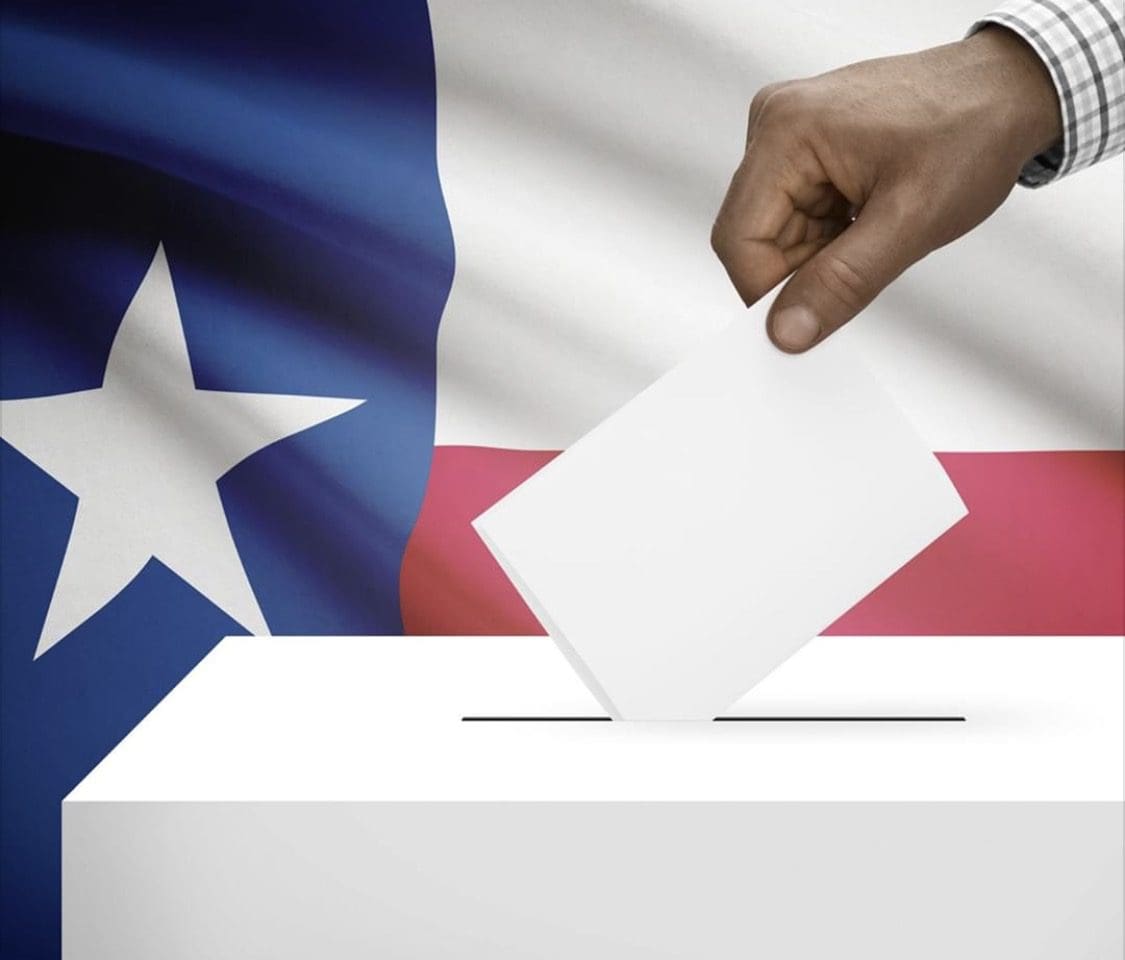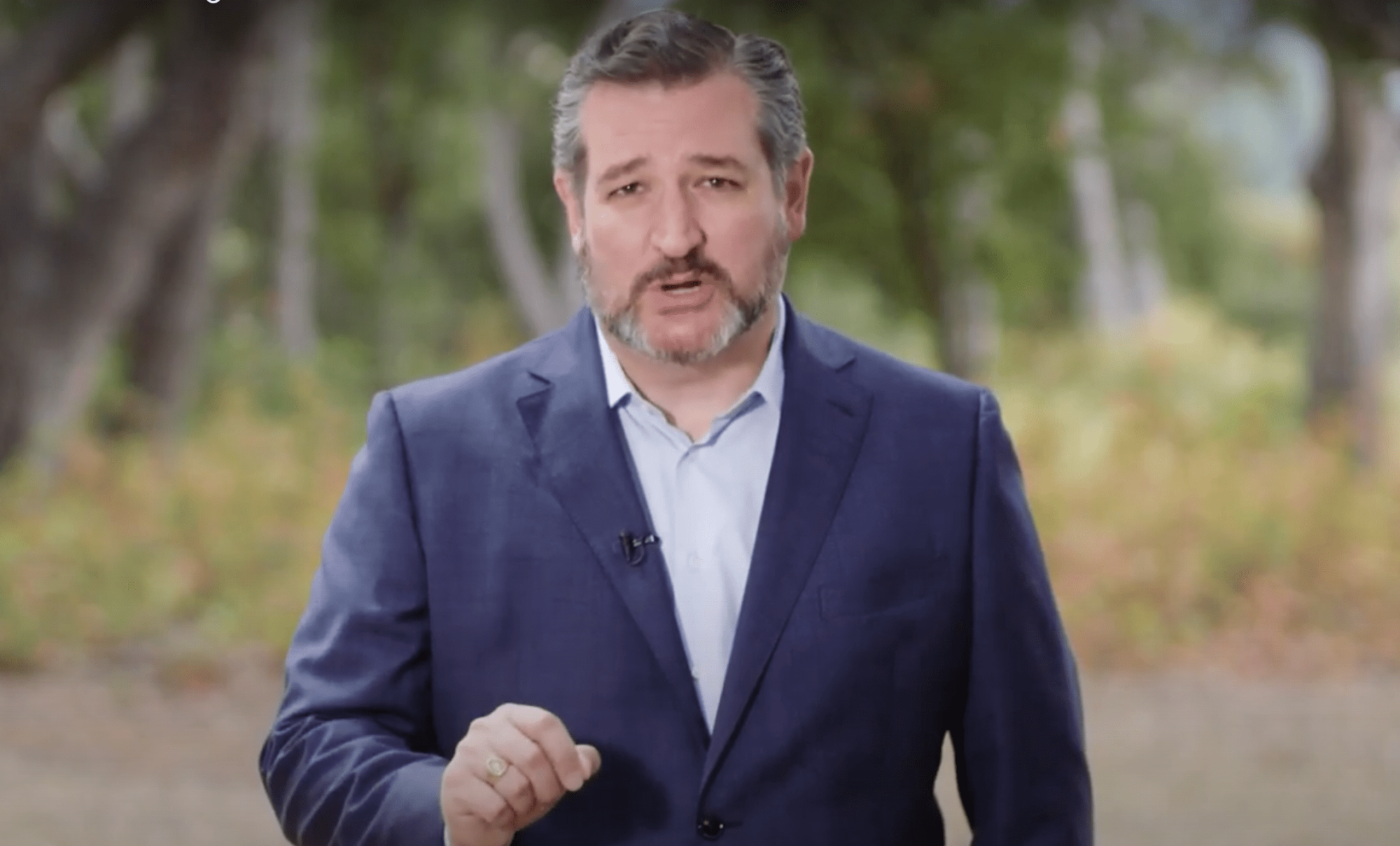In an unexpected maneuver, the state lawmaker in charge of moving election integrity bills through the Texas House advanced the Legislature’s top-priority election reforms, breaking a weeks-long logjam.
On Thursday, State Rep. Briscoe Cain (R–Deer Park), who chairs the House Elections Committee, substituted one major pending bill for another, replacing the entire contents of Senate Bill 7 with the language in House Bill 6, which he authored.
While substantially different, the two top-tier election integrity bills are both comprehensive “omnibus” measures containing a number of reforms sought by advocates.
Cain called for a vote on the revised version of SB 7 (called a committee substitute), explaining the substitute was “identical to HB 6.”
Because HB 6 had already received an hours-long public hearing on April 1 that lasted until the next morning, Cain said the substitute version of SB 7 (now with language identical to HB 6) did not need another hearing.
Yet the unexpected move put Democrats on the committee in an uproar and prompted some strong language from the vice chair, State Rep. Jessica González (D–Dallas), who called it “bull****.”
Amid the confusion, Cain paused the hearing until after the House adjourned for the day.
During that time, Democrats fired off a letter to the U.S. Department of Justice complaining about the maneuvering and asking the Civil Rights Division to “monitor the proceedings” of the committee and Texas House “for the remainder of the session.”
When the committee reconvened Thursday night, members appeared to be on the same page about what they were considering.
Democrats offered a few amendments, which were voted down. Cain noted all House members will have an opportunity to offer amendments to the bill when it is considered on the House floor.
Members then voted to advance the SB 7 substitute on a 5-4 party-line vote.
Priorities
Election integrity is a top legislative priority of the Texas GOP and the only one also declared an emergency item by Republican Gov. Greg Abbott back in February.
House Bill 6 and Senate Bill 7 are the Legislature’s premier bills addressing the priority.
Both have created controversy.
Democrats and their corporate allies have been demagoguing the reforms for weeks, mischaracterizing election integrity as “voter suppression” and “bad for business,” but they are powerless to block the legislation.
The Senate passed SB 7 by State Sen. Bryan Hughes (R–Mineola) back on April 1, on a party-line 18-13 vote, and it was referred to the House Elections Committee on April 12.
HB 6 had remained stalled since April 8, when the committee voted on party lines to advance a committee substitute of the bill.
No further action on either bill occurred until Thursday, April 29, when the HB 6 substitute was posted online—presumably the version of HB 6 that was substituted into the new version of SB 7 advanced by the committee.
On Friday morning, April 30, HB 6 was sent to the House Calendars Committee. SB 7 is likely not far behind.
Republicans have also filed dozens of individual bills promoting the priorities contained in the omnibus measures.
It’s unclear exactly what reforms the bills will contain when or if they finally pass both legislative chambers, but Republican lawmakers behind the bills are touting success.
Grassroots election integrity advocates say they will wait and see.
“I think something will get passed because Gov. Abbott has made election integrity a priority,” said Fran Rhodes, president of the grassroots activist group True Texas Project. “But whether or not we can call it ‘good’ remains to be seen. SB 7 had the protections we were looking for before it got substituted for HB 6, so we’ll have to see how the amendment and/or conference committee process goes.”
Process
Once passed out of committee, House bills are sent to the Calendars Committee, whose members decide when (or if) each bill will be placed on the House calendar to be considered by the full chamber in the order in which they are received.
As bills stack up in Calendars, their chance of moving through to passage shrinks. Bills that get placed on the calendar in time are debated and may be amended. If the full House votes two separate times to pass a bill, it is then sent to the Senate to repeat a similar process.
If the House passes a different version of a Senate bill, the Senate must approve the revised bill, or else members of both chambers form a conference committee to hammer out a mutually acceptable compromise.
Texas Scorecard is tracking the progress of key election integrity bills in the House and Senate.
As of April 30, the House has passed only one RPT-priority election integrity bill; 10 are awaiting action in Calendars. The Senate has passed five of six election bills designated as PRT priorities.
The clock is ticking for the Republican-controlled Legislature to get priority election reform bills to the governor’s desk before the regular session ends on May 31.
Bill details and resources to help citizens participate in the legislative process are available at Texas Legislature Online.





